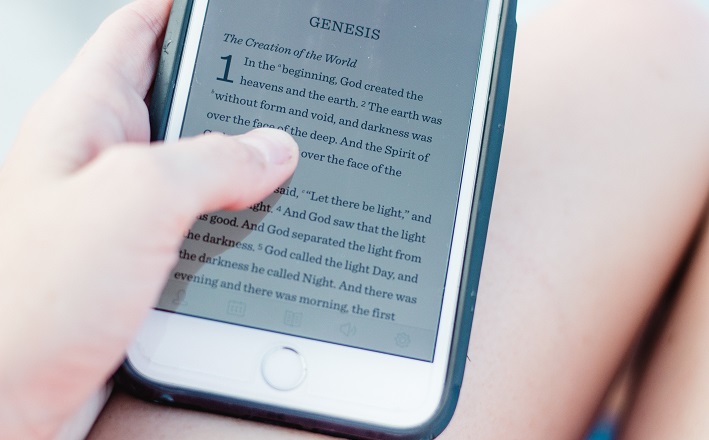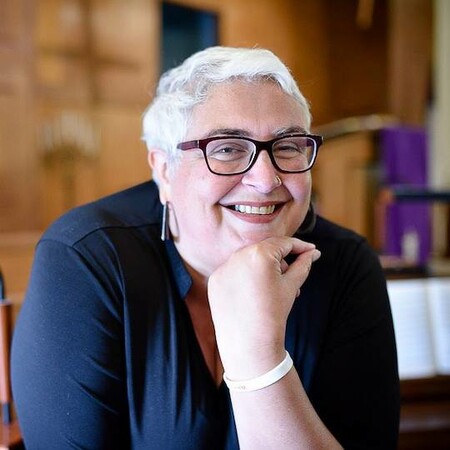Editor’s Note: This article provides suggestions for preaching the semi-continuous first readings (referred to as Alt. 1st Reading on this website) for Time after Pentecost in Year A of the Revised Common Lectionary.
I’ve spent a lot of time recently thinking about the figures in the Bible as our spiritual ancestors. (There’s a chapter just on that subject in my newest book, Rebels, Despots, and Saints: The Ancestors Who Free Us and the Ancestors We Need to Free.)
Thinking of people in the Bible as ancestors gives permission to those of us who received messages along the way that connecting with our ancestors was for some reason un-Christian. But from the book of Hebrews onward, Christians have clearly remembered “so great a cloud of witnesses” as part of their faithful practice. It can be a helpful framework for the many people who don’t know their biological ancestors or haven’t figured out what to do about how complicated their biological ancestors are.
And then we get to the arc of stories from the book of Genesis, and it turns out our spiritual ancestors are just as messy as our biological ones. Who doesn’t have some stories in their family history that mirror the themes in these ones?
Theme: Navigating complicated relationships and being faithful
RCL Year A, Semi-continuous First Readings (June 11 – July 2, 2023):
- June 11, 2023 (Ordinary 10A): Genesis 12:1-9 | Leaving family home/origins
- June 18, 2023 (Ordinary 11A): Genesis 18:1-15 | Fertility struggles or birth stories
- June 25, 2023 (Ordinary 12A): Genesis 21:8-21 | Complicated parenting relationships
- July 2, 2023 (Ordinary 13A): Genesis 22:1-14 | Parents and children, sacrifice
I grew up with pastors who did a great job of encouraging me not to be too judgmental of the original disciples. They pointed out to me that Jesus chose imperfect people because we’re all imperfect, and their imperfections give us space to extend ourselves grace for our own limitations.
As I approach Abraham-Isaac-Jacob-Joseph, and Sarai-Hagar-Rivka-Leah-Rachel, I find myself thinking about how I’ve seen certain congregations do worship series on “Learning from Biblical Marriages” and wondering exactly what those congregations want us to learn.
Here’s why I think these figures are worth delving into, though, and how someone might choose to do so.
Land, social dynamics, and power
When we first encounter Abram, God sends him to the land of Canaan and tells him that this land will be his descendants’… but in a later story in this series, Abram’s son Isaac seeks to marry someone from his father’s tribe, not the land in which they currently live, the land of the Canaanites. This matters a lot to those of us thinking about our relationships with land. So often we engage the stories of our Biblical ancestors in terms of what is sometimes referred to as “a land without a people; a people without a land” when in fact there were people there, and this story arc hints at the idea that perhaps God didn’t intend to steal land from other people but to create a context for Abraham and his descendants to live among and in harmony with people of a different faith and culture. This matters a lot to how we think about land rights and border issues today, as well as what our relationship with our Indigenous family looks like in the place we inhabit.
I wrote extensively about Hagar, Sarai, and Abram in Rebels, Despots, and Saints, but there are a couple of issues that our spiritual ancestors can point us to as we explore that passage. The Rev. Dr. Donna Allen once gave a sermon about Hagar in which she points out that the author says the first time Hagar ran away, the angels sent her back. But since Dr. Allen knows that God abhors slavery, she suspects what really happened was Hagar was caught and said, “OK, this was my reconnaissance trip so I can make a better escape next time.” It matters that we have as our spiritual ancestors a man who pretends he has no agency in the conflict between his wife and the woman they have enslaved, when we know he had all the power in that dynamic. It also matters that we have as a spiritual ancestor a woman whom God helped not just survive but thrive far away from the place of her enslavement. We are the spiritual descendants of both of them as well as Sarai, a woman who had little power and what little she had she used at someone else’s expense. All of those stories give us a window into who we are, who we could be, and who we want to be.
I once had the honor of co-teaching a Bible course with my colleague the Rev. Dr. Katy Valentine. She invited the students to listen to the story of Abraham and Isaac and the sacrifice of the ram from this lectionary series. She asked the students whether they thought God was testing Abraham, and most students said yes. She then asked if they thought Abraham had passed the test, and most of them said yes again. She then pointed out that in the passage God tells Abraham to take his son, his only son, the son he loves, and sacrifice him. Now, the lectionary passage from the week before shows us that Abraham actually had two children. Perhaps God was giving Abraham the chance to claim that other son. Perhaps God was calling him out for the fact that he had behaved as if Isaac were the only son he loved. Perhaps he was inviting Abraham to be honest or contrite, to show that he understood how God’s love really worked. And when he actually offered to kill his own son, God didn’t intervene because of Abraham’s unstinting faith but because God had to rescue Abraham from his failure to understand how God’s love really worked. If that story doesn’t invite us to reflect on the ways in which we deny reality that is too painful, the ways we choose to do what’s in front of us instead of asking the critical questions that would cause us to stand up against authority, then we’re missing out on the profound gift of this complicated ancestor.
Themes: Identity, staying safe, gaining power, being faithful
RCL Year A, Semi-continuous First Readings (July 9 – August 20, 2023):
- July 9, 2023 (Ordinary 14A): Genesis 24:34-38, 42-49, 58-67 | Isaac and Rebekah
- July 16, 2023 (Ordinary 15A): Genesis 25:19-34 | Esau and Jacob
- July 23, 2023 (Ordinary 16A): Genesis 28:10-19a | Jacob’s Dream
- July 30, 2023 (Ordinary 17A): Genesis 29:15-28 | Jacob, Leah & Rachel
- Aug. 6, 2023 (Ordinary 18A): Genesis 32:22-31 | Jacob Wrestles with God
- Aug. 13, 2023 (Ordinary 19A): Genesis 37:1-4, 12-28 | Joseph, Sold by his Brothers
- Aug. 20, 2023 Ordinary 20A Genesis 45:1-15 | Joseph and Brothers Reunite
Too often the church ignores Hebrew Bible passages because they’re so complex. The real gift of this season of the lectionary is we get to plunge into the complexity of these spiritual ancestors, because we are also complex, and their wrestlings give us insights into our own. Every one of them was wrestling with questions of identity, of staying safe, of gaining power, and of trying to be faithful to God at the same time. They did so in the midst of regional conflict, in the midst of structures that placed women below men, at a time when enslaving people and exploiting labor were acceptable.
Every story is about people navigating, for better or worse, how to live out God’s call of love and liberation. If that’s not relatable wisdom from our spiritual ancestors for our task today, I don’t know what is.

